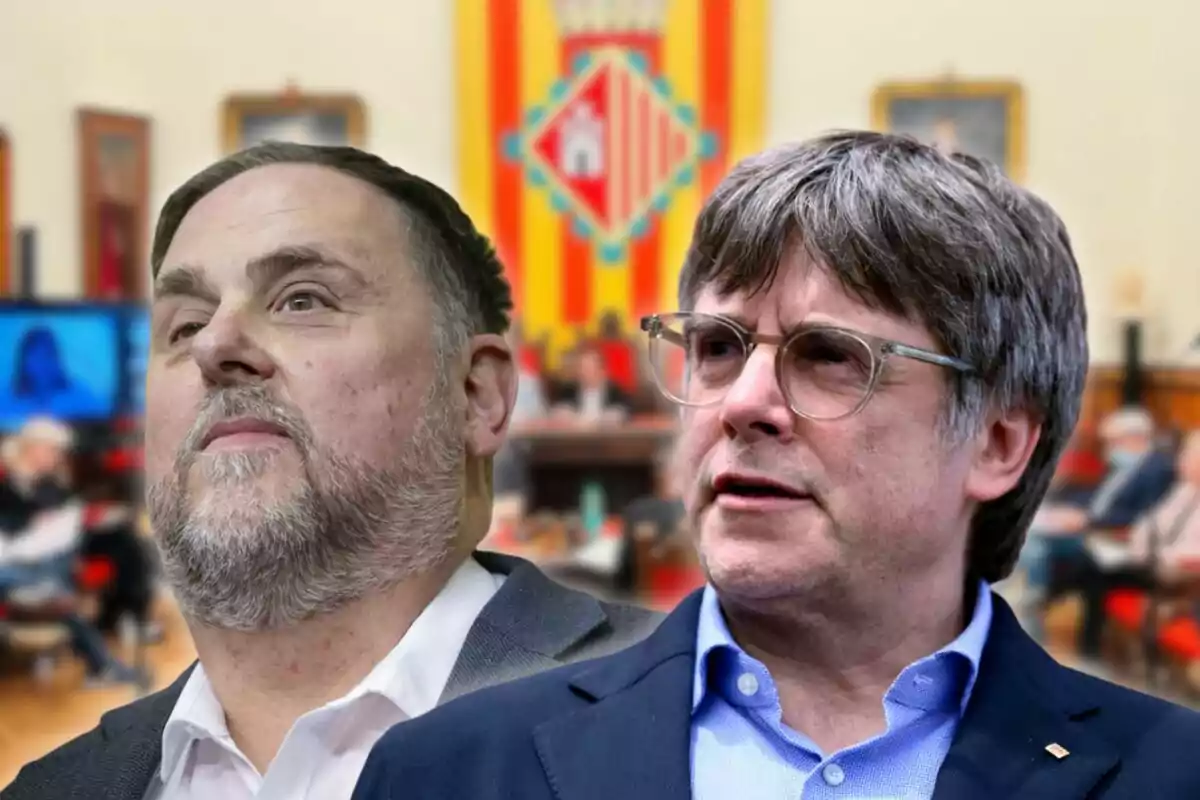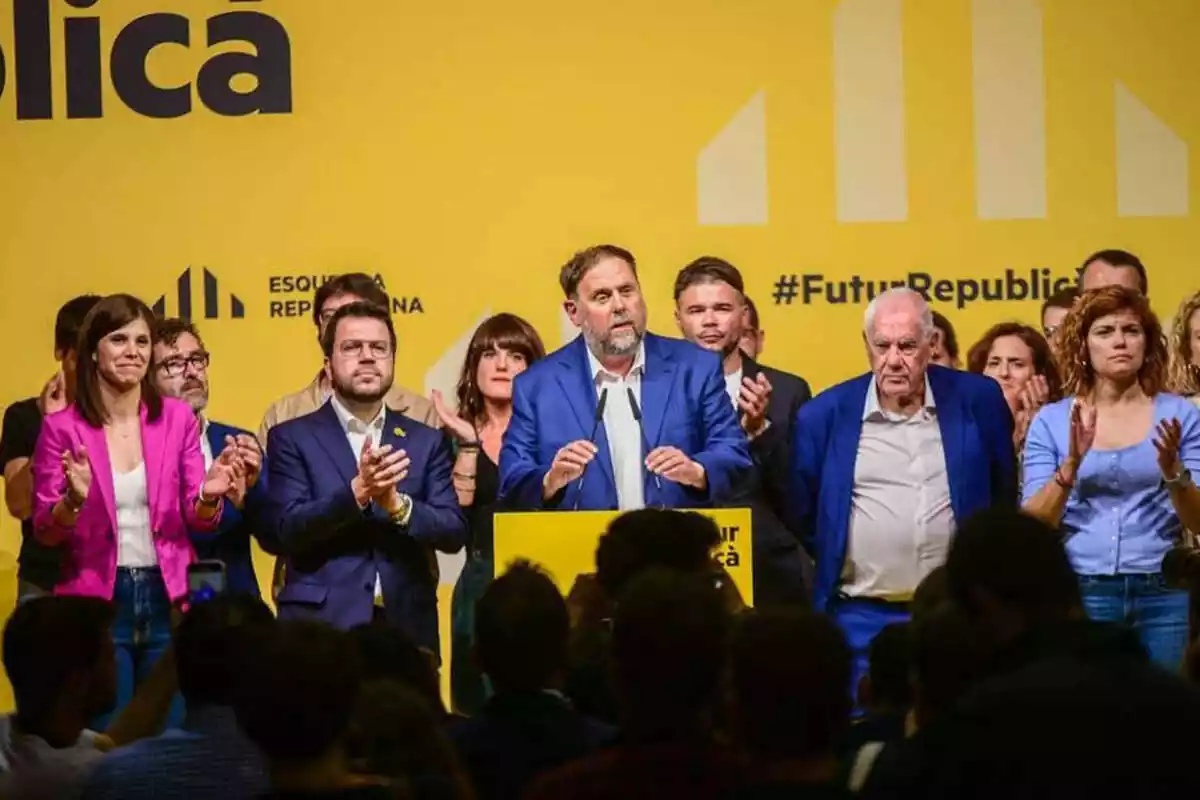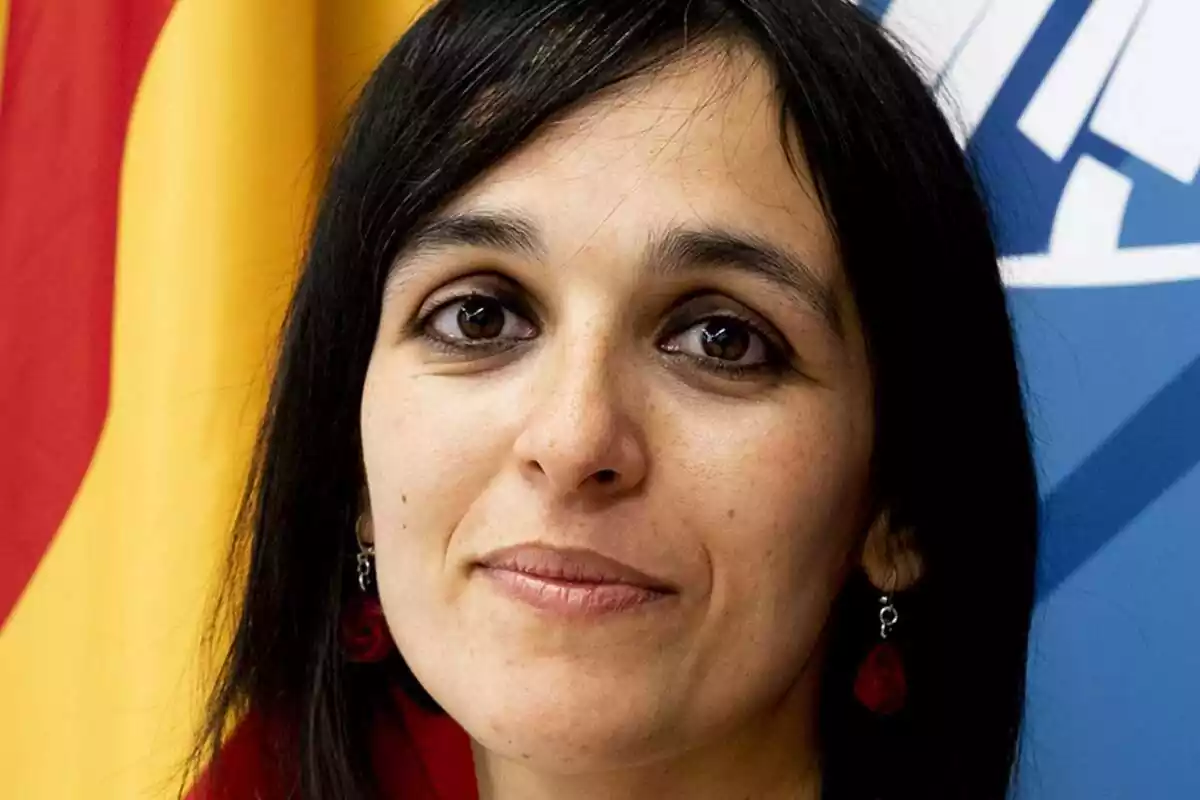
The Process Seeks to Reemerge in the 2027 Municipal Elections, With Aliança Catalana Lurking
Barcelona, Ripoll, Manresa, Lleida, and Girona Among the Priorities of ERC and Junts
The municipal elections on May 28, 2023, marked the beginning of the great crisis dragging down the pro-separatism parties. A crisis that led ERC and Junts to fracture, and to hold national congresses to renew leadership and strategies. Once their power was consolidated, Oriol Junqueras and Carles Puigdemont set their sights on the 2027 municipal elections as a horizon for rebirth.
Republicans and post-convergents have a significant challenge ahead. ERC took the worst hit, as it went from being the first to the third force compared to the 2019 municipal elections. It lost 300,000 votes and went from having 359 mayorships to 329.

The bleeding was less for Junts, which also lost votes but not as many, and their problem was the post-election pacts. The catastrophic strategy led by Jordi Turull made them go from 370 mayorships to 329. Junts lost a good part of its territorial power, both in the town halls and in the provincial councils.
Moreover, the 2023 municipal elections highlighted the rise of Aliança Catalana, which has further impacted the pro-separatism parties. ERC and Junts see the 2027 municipal elections as a springboard for the Catalan elections in 2028. They will also be important for gaining strength amid the political space recomposition in Catalonia.
Growing from the Territory, Junqueras's Strategy
Oriol Junqueras is in the midst of a battle to complete the party's control through territorial organizations. It is not an easy task, given the division reigning among the Republicans. Junqueras has had to negotiate with the internal opposition in Girona and has seen alternative lists appear in Barcelona and Tarragona.
Consolidating his power will be the necessary preliminary step to start preparing for the 2027 elections. Junqueras managed to be re-elected thanks to a candidacy based on municipal strength. His reconstruction strategy is based on the conviction that the party must grow from the municipalities as the CUP did in its time.
Barcelona will be an essential stronghold for ERC's aspirations to become a protagonist again in Catalan politics. That's why they have renounced entering Collboni's government, which would have worn down the Republicans too much. ERC will compete in Manresa for hegemony with Aliança Catalana and wants to regain momentum in Tarragona and Lleida as well.
During these two years leading up to the municipal elections, Junqueras will launch his strategy to attract new members. He wants to build the new party from the ground up and broaden the base by opening the doors to non-separatism sectors.
Junts, with an Eye on Aliança Catalana
The 2027 municipal elections will be marked by the confrontation between Junts and Aliança Catalana. Jordi Turull doesn't want to make the same mistakes as two years ago and has called a municipal convention for the upcoming May 10. Junts will gather mayors, councilors, and candidates to start preparing for the elections.

The battleground between the post-convergents and the identitarians will be the inland regions, especially cities like Manresa or Vic. Post-election pacts will also be very important because a Junts-AC alliance could unseat the left. Ripoll, Manlleu, Girona, Olot, or Lleida are other important places for the Junts members.
Likewise, Junts wants to expand its majority in strongholds like Figueres, Martorell, Calella, and Cabrera de Mar. These mayorships have been pioneers in the party's conservative shift on security and immigration. Their consolidation and extension to other territories will help Junts neutralize the threat of Aliança Catalana in the race toward the Generalitat.
Junts will also have to decide on Xavier Trias's replacement in Barcelona and design the strategy to regain the mayoralty in the capital. Lleida will be the perfect stage to clash with the PSC, while Puigdemont dreams of governing in Girona again.
More posts: